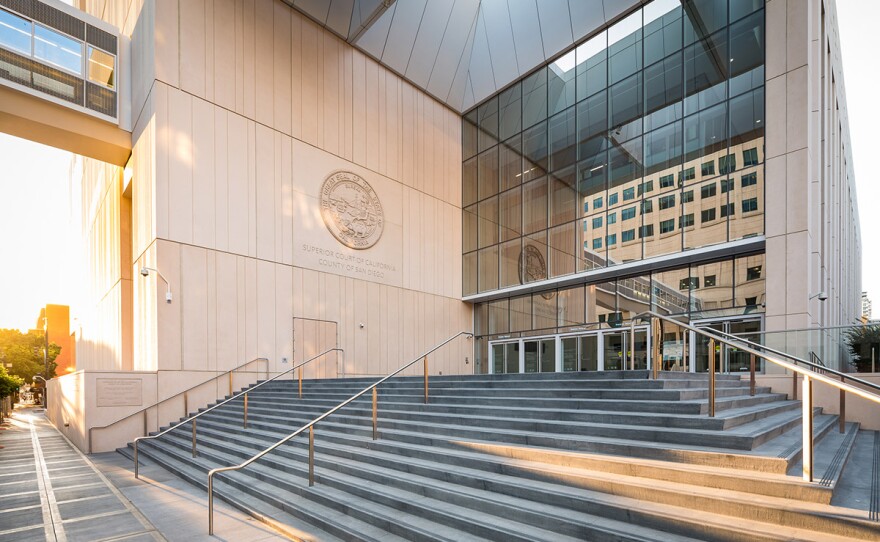The San Diego Superior Court held its first video-conference criminal court matter Monday under new procedures aimed at reducing a case backlog build-up due to the COVID-19 pandemic.
San Diego courts remain closed to the public through at least April 30, but Monday marked the first of several planned remote matters for defendants who remain in custody. The defendant, his attorney, and a deputy district attorney appeared remotely, while Presiding Judge Lorna Alksne and a small collection of court staff — all clad in masks — conducted the hearing in person at the downtown San Diego courthouse.
Monday's brief proceeding was slated as a preliminary hearing on a felony vandalism case, but the defendant's attorney declared doubts as to his client's competency and criminal proceedings were suspended. Another hearing was set for April 24.
RELATED: San Diego Presiding Judge Authorizes Release of Inmates With Less than 60 Days
While some measures have been taken to reduce the county's jail population, including a revised bail schedule and authorization for the sheriff's department to release inmates with up to 60 days remaining on their sentences, the San Diego Superior Court hopes video conferencing can eliminate the remaining backlog of criminal cases, which has been growing since COVID-19- related court closures began around mid-March.
Following the hearing, Alksne said additional video-conferenced cases would be held Tuesday and Wednesday at the San Diego Central Courthouse, before rolling out in other county courthouses starting Thursday.
The judge said 14 courtrooms would be utilized to hold video- conferenced matters streaming from seven county detention centers. Alksne said testimony from witnesses would be conducted over the telephone.
Despite the limitations of remote hearings, Alksne said "to be able to have hearings safely, with everybody safely distanced, and also not having too many people in a tight space, not having to transport defendants for a five- minute hearing, makes a lot of sense."








